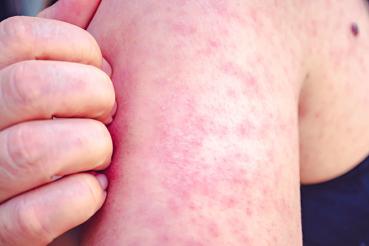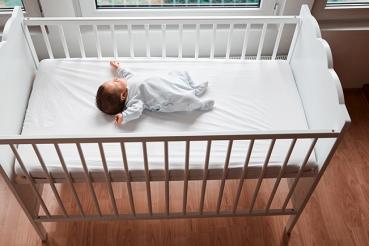What does the rise in RSV, or respiratory syncytial virus, mean for your children?
We asked Colleen Nash, MD, MPH, a pediatric infectious diseases specialist at RUSH, to offer some guidance on keeping your family safe this season.
Why have we been hearing so much about RSV lately?
Typically, RSV season begins in the late fall into winter, but this year, we’ve seen it begin several weeks earlier and ramp up more quickly.
In Illinois, our test positivity rate is more than 20%, which is quite high. At RUSH and at other pediatric hospitals across the country, RSV is causing high demand for pediatric beds that we really haven’t seen before.
Why is RSV popping up earlier than usual this year?
This is one of our first more “normal” school years since COVID-19 appeared. With most kids unmasked, there’s more opportunity to spread germs. That’s translated into an early and aggressive RSV season.
Has the surge in RSV reached its peak yet?
RSV positivity rates were somewhat stable from last week to this week, but we just don’t know. I think we still have a way to go before we start to see a decline in infections.
Did COVID-19 restrictions lead to decreased immunity against RSV?
Because of pandemic-related restrictions, young children may have missed a few infections that they normally would have had. So, for some toddlers, this may be the first time they’ve had RSV. They might be more vulnerable because of that lack of immunity, but it’s hard to know for sure.
Which kids are at risk for severe RSV that leads to hospitalization?
Most kids who get RSV will have mild cases and won’t need to be hospitalized. Those at highest risk for hospitalization are infants, especially those younger than three months. Children with any lung disease are also at risk for more severe disease, and many preemies fall into that category.
What happens when kids get severe RSV?
RSV can cause significant inflammation in the airways in the lungs. Kids with severe RSV often need intensive care and may have a prolonged hospital stay, requiring days or weeks of supplemental oxygen therapy. They may also develop another type of infection like bacterial pneumonia on top of RSV.
Can RSV be prevented?
A monoclonal antibody called Synagis (also known as palivizumab) can be given to the most vulnerable kids like some premature infants or infants with certain underlying conditions. It is injected every month during RSV season to help protect them against severe infection. This season, we started giving it a month earlier than usual because of the surge.
Can adults get RSV?
Yes, anyone can get RSV. But those who typically require hospitalization are infants and the elderly.
How is RSV different from the common cold?
The common cold primarily affects the upper respiratory tract, causing symptoms like a runny nose, cough and congestion. RSV can affect the lower respiratory tract, sometimes causing an incredible amount of inflammation in the lungs and airways. That is why it’s so hard for our infant population to handle because they have smaller airways.
What are some of the warning signs of RSV?
It’s hard because RSV can look like other respiratory infections. We know RSV can ramp up over several days, so your child’s breathing may get worse before it gets better. You’ll want to watch how they are doing day to day and look for signs that they are working hard to breathe, especially if they have any underlying health issues. Signs they may have trouble breathing include flaring of the nostrils or straining of the muscles in their neck, chest or belly.
What should parents do if they think their infant or child has RSV?
You’ll want to discuss your child’s symptoms with your pediatrician. For any emergent issues, you should take your child to the emergency room.
How is RSV treated?
There’s no mainstay therapy that is known to work against acute RSV. But you can make your child more comfortable if you:
- Position a cool-air humidifier near your child.
- Make sure your kid drinks plenty of fluids.
- Offer an age-appropriate pain reliever, like acetaminophen or ibuprofen.
To reduce the spread of RSV:
- Keep your kids home from school and have them wear a mask around others if they are sick.
- Teach your child to wash their hands effectively and frequently.
- Clean household surfaces regularly to remove germs.
Do you think we’ll see a triple threat of RSV, COVID and the flu this season?
RSV isn’t the only virus that will cause problems this season. We are going to see more COVID and more flu as well.
Although there is no vaccine for RSV, you can mitigate some of the effects of the other viruses by getting your entire family vaccinated against COVID-19 and the flu if they are eligible. I can’t overstate the importance of that.
RUSH On Demand offers many options for you to get care for your child today.





